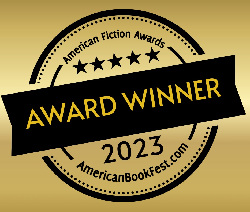Commercial versus Literary Fiction
The distinction between literary fiction and commercial fiction lies primarily in their focus, purpose, and style, though the boundaries between them can sometimes blur.
Literary Fiction
- Typically appreciated by critics, scholars, and literary awards committees
- Focuses on depth and style, artistic expression, and complex themes or philosophical ideas
- Prioritizes character development, prose style, and deeper meanings
- Often challenges readers, encouraging introspection and interpretation
- Appeals to readers who value nuanced writing and stimulating narratives
- May have a slower pace and less conventional or straightforward plot structures
- Meant to provoke thought, inspire reflection, or pursue artistic expression
- Often includes themes of ambiguity or complexity without clear resolutions
- Sales are typically less than commercial fiction
Examples
- Pictures of You by Emma Grey
- I Think We've Been Here Before by Suzy Krause
- The Autumn of Ruth Winters by Marshall Fine
As stated previously, this site is intended to help new commercial fiction writers. If you're pursuing literary fiction, a good resource is Story in Literary Fiction.
Commercial Fiction
- Prioritizes plot-driven stories, accessible language, and fast-paced action
- Appeals to a wide, mainstream audience looking for an engaging, often escapist, experience
- Typically has a clear beginning, middle, and end with a satisfying resolution
- Often adheres to established genre conventions (e.g., romance, thriller, mystery, fantasy)
- Primarily intended to entertain and sell well in the marketplace
- May still tackle meaningful themes but in a more accessible or formulaic way
- Sales are typically more than literary fiction
Examples:
- The Da Vinci Code by Dan Brown
- Harry Potter series by J.K. Rowling
- CAPTIVE by Michael Garrett
When you seek writing help, the best resource is someone with experience in the publishing industry—an editor who understands what commercial publishers look for in a manuscript. A writing mentor, who can offer insights through manuscript critique services or book editing services, is a valuable ally on your journey to publication.



